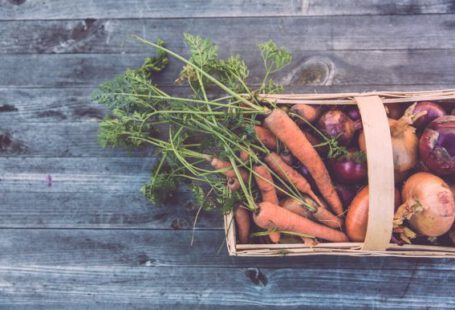In today’s world, the demand for organic products is increasing as people become more aware of the harmful effects of chemicals on their health and the environment. This shift towards organic farming practices has led to a growing interest in finding organic alternatives to chemical fertilizers. By using natural and sustainable methods, farmers can enhance soil fertility and promote healthier plant growth. In this article, we will explore some of the most effective organic alternatives to chemical fertilizers.
Compost: The Black Gold
Compost, often referred to as “black gold,” is one of the best organic alternatives to chemical fertilizers. It is made by decomposing organic matter, such as kitchen scraps, yard waste, and manure. Compost is rich in nutrients and beneficial microorganisms that improve soil structure and fertility. By adding compost to the soil, farmers can provide a steady supply of nutrients to plants and enhance moisture retention, leading to healthier and more resilient crops.
Cover Crops: Nature’s Blanket
Cover crops are another excellent organic alternative to chemical fertilizers. These are plants grown specifically to cover the soil between crops or during fallow periods. Cover crops help prevent soil erosion, suppress weeds, and improve soil fertility. Leguminous cover crops, such as clover and vetch, have the added benefit of fixing nitrogen from the atmosphere, making it available to other plants when they decompose. By incorporating cover crops into their farming practices, farmers can naturally replenish the soil and reduce the need for synthetic fertilizers.
Manure: Nature’s Nutrient Source
Manure has been used as a natural fertilizer for centuries. It is a rich source of nutrients, including nitrogen, phosphorus, and potassium, essential for plant growth. When properly composted, manure can also help improve soil structure and moisture retention. However, it is crucial to use well-aged or composted manure to avoid the risk of introducing harmful bacteria into the soil. By using manure as an organic alternative to chemical fertilizers, farmers can promote sustainable nutrient cycling and reduce their reliance on synthetic inputs.
Green Manure: Plant Power
Green manure refers to the practice of growing specific plants and then plowing them back into the soil to improve soil fertility. These plants, known as cover crops or green manures, are typically fast-growing and nutrient-rich. When incorporated into the soil, green manures add organic matter, increase nutrient levels, and enhance soil structure. Some popular green manure crops include legumes like alfalfa and clover, as well as grasses like rye and oats. By harnessing the power of plants to naturally replenish soil nutrients, farmers can reduce their dependence on chemical fertilizers.
Fish Emulsion: Nutrients from the Sea
Fish emulsion is a liquid organic fertilizer made from decomposed fish or fish by-products. It is an excellent source of nitrogen, phosphorus, and potassium, as well as trace elements like calcium and magnesium. Fish emulsion is highly soluble and readily available to plants, making it an effective organic alternative to chemical fertilizers. It can be applied directly to the soil or used as a foliar spray. By utilizing fish emulsion, farmers can provide essential nutrients to their crops while minimizing the environmental impacts associated with chemical fertilizers.
In conclusion, there are several effective organic alternatives to chemical fertilizers available to farmers today. Compost, cover crops, manure, green manure, and fish emulsion are just a few examples of the many natural and sustainable methods that can enhance soil fertility and promote healthier plant growth. By adopting these organic alternatives, farmers can contribute to a more sustainable and environmentally friendly agricultural system, while also producing healthier and more nutritious crops.





